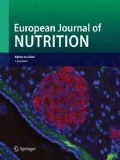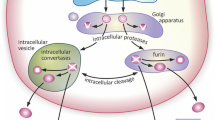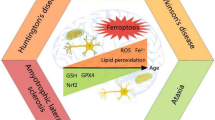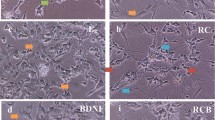Abstract
Background
The n-3 polyunsaturated fatty acid, eicosapentaenoic acid (EPA) has been found to process neuroprotective effects. However, the exact cellular mechanisms are not well understood. Brain-derived neurotrophic factor (BDNF) is one of neurotrophins, which is involved in neuron differentiation, survival, and synaptogenesis.
Aim of the study
In this study, the potential neuroprotective effects of EPA, and its possible effects on BDNF and BDNF receptor expression were investigated in SH-SY5Y cells.
Methods
Both undifferentiated and retinoic acid (RA)-BDNF differentiated SH-SY5Y cells were treated with EPA and/or BDNF. The cell viability was determined by MTT assay. The expression of BDNF receptors, tyrosine kinase receptor B (TrkB) and p75NTR were tested by RT-PCR and Western blotting.
Results
In undifferentiated SH-SY5Y cells, either EPA or BDNF, or both did not affect the cell viability. In RA-BDNF differentiated SH-SY5Y cells, treatment with different doses of EPA (0.01, 0.1, 1.0, 10.0 µM) and BDNF (1 ng/ml) for 24 hours significantly increased the cell viability, while EPA or BDNF alone showed no effect. More importantly, RT-PCR and Western blotting results revealed that 24 hours treatment with EPA (0.01, 0.1, 1.0 µM) significantly increased the full-length TrkB (TrkBTK+), but not truncated TrkB (TrkBTK−) expression in these cells. An increase in p75NTR expression was also observed with 10.0 µM EPA treatment. Finally, co-incubation with either 100 nM staurosporine, a protein kinase inhibitor, or 500 nM K252a, a tyrosine kinase inhibitor completely abolished the EPA-induced increase in cell viability.
Conclusions
Our results indicate that EPA exerts beneficial effects on cell survival through modulating neurotrophin receptor expression.




Similar content being viewed by others
References
Abemayor E, Sidell N (1989) Human neuroblastoma cell lines as models for the in vitro study of neoplastic and neuronal cell differentiation. Environ Health Perspect 80:3–15
Baxter GT, Radeke MJ, Kuo RC, Makrides V, Hinkle B, Hoang R, Medina-Selby A, Coit D, Valenzuela P, Feinstein SC (1997) Signal transduction mediated by the truncated trkB receptor isoforms, trkB.T1 and trkB.T2. J Neurosci 17:2683–2690
Bibel M, Hoppe E, Barde YA (1999) Biochemical and functional interactions between the neurotrophin receptors trk and p75NTR. Embo J 18:616–622
Bothwell M (1995) Functional interactions of neurotrophins and neurotrophin receptors. Annu Rev Neurosci 18:223–253
Chao MV, Hempstead BL (1995) p75 and Trk: a two-receptor system. Trends Neurosci 18:321–326
Choi-Kwon S, Park KA, Lee HJ, Park MS, Lee JH, Jeon SE, Choe MA, Park KC (2004) Temporal changes in cerebral antioxidant enzyme activities after ischemia and reperfusion in a rat focal brain ischemia model: effect of dietary fish oil. Brain Res Dev Brain Res 152:11–18
Eide FF, Vining ER, Eide BL, Zang K, Wang XY, Reichardt LF (1996) Naturally occurring truncated trkB receptors have dominant inhibitory effects on brain-derived neurotrophic factor signaling. J Neurosci 16:3123–3129
Encinas M, Iglesias M, Liu Y, Wang H, Muhaisen A, Ceña V, Gallego C, Comella JX (2000) Sequential treatment of SH-SY5Y cells with retinoic acid and brain-derived neurotrophic factor gives rise to fully differentiated, neurotrophic factor-dependent, human neuron-like cells. J Neurochem 75:991–1003
Grant WB (1999) Dietary links to Alzheimer’s disease: 1999 update. J Alzheimers Dis 1:197–201
Haapasalo A, Sipola I, Larsson K, Akerman KE, Stoilov P, Stamm S, Wong G, Castren E (2002) Regulation of TRKB surface expression by brain-derived neurotrophic factor and truncated TRKB isoforms. J Biol Chem 277:43160–43167
Hartmann H, Busciglio J, Baumann KH, Staufenbiel M, Yankner BA (1997) Developmental regulation of presenilin-1 processing in the brain suggests a role in neuronal differentiation. J Biol Chem 272:14505–14508
Holback S, Adlerz L, Iverfeldt K (2005) Increased processing of APLP2 and APP with concomitant formation of APP intracellular domains in BDNF and retinoic acid-differentiated human neuroblastoma cells. J Neurochem 95:1059–1068
Jalava A, Heikkilä J, Lintunen M, Akerman K, Påhlman S (1992) Staurosporine induces a neuronal phenotype in SH-SY5Y human neuroblastoma cells that resembles that induced by the phorbol ester 12-O-tetradecanoyl phorbol-13 acetate (TPA). FEBS Lett 300:114–118
Jamsa A, Hasslund K, Cowburn RF, Backstrom A, Vasange M (2004) The retinoic acid and brain-derived neurotrophic factor differentiated SH-SY5Y cell line as a model for Alzheimer’s disease-like tau phosphorylation. Biochem Biophys Res Commun 319:993–1000
Kalmijn S, Feskens EJ, Launer LJ, Kromhout D (1997) Polyunsaturated fatty acids, antioxidants, and cognitive function in very old men. Am J Epidemiol 145:33–41
Kaplan DR, Matsumoto K, Lucarelli E, Thiele CJ (1993) Induction of TrkB by retinoic acid mediates biologic responsiveness to BDNF and differentiation of human neuroblastoma cells. Eukaryotic Signal Transduction Group. Neuron 11:321–331
Kaplan DR, Miller FD (2000) Neurotrophin signal transduction in the nervous system. Curr Opin Neurobiol 10:381–391
Kaplan DR, Miller FD (1997) Signal transduction by the neurotrophin receptors. Curr Opin Cell Biol 9:213–221
Klein R, Conway D, Parada LF, Barbacid M (1990) The trkB tyrosine protein kinase gene codes for a second neurogenic receptor that lacks the catalytic kinase domain. Cell 61:647–656
Kremer JM, Jubiz W, Michalek A, Rynes RI, Bartholomew LE, Bigaouette J, Timchalk M, Beeler D, Lininger L (1987) Fish-oil fatty acid supplementation in active rheumatoid arthritis. A double-blinded, controlled, crossover study. Ann Intern Med 106:497–503
Li YP, Bushnell AF, Lee CM, Perlmutter LS, Wong SK (1996) Beta-amyloid induces apoptosis in human-derived neurotypic SH-SY5Y cells. Brain Res 738:196–204
Lonergan PE, Martin DS, Horrobin DF, Lynch MA (2004) Neuroprotective actions of eicosapentaenoic acid on lipopolysaccharide-induced dysfunction in rat hippocampus. J Neurochem 91:20–29
Martin DS, Lonergan PE, Boland B, Fogarty MP, Brady M, Horrobin DF, Campbell VA, Lynch MA (2002) Apoptotic changes in the aged brain are triggered by interleukin-1beta-induced activation of p38 and reversed by treatment with eicosapentaenoic acid. J Biol Chem 277:34239–34246
Mehta JL, Lopez LM, Lawson D, Wargovich TJ, Williams LL (1988) Dietary supplementation with omega-3 polyunsaturated fatty acids in patients with stable coronary heart disease. Effects on indices of platelet and neutrophil function and exercise performance. Am J Med 84:45–52
Meldolesi J, Sciorati C, Clementi E (2000) The p75 receptor: first insights into the transduction mechanisms leading to either cell death or survival. Trends Pharmacol Sci 21:242–243
Middlemas DS, Lindberg RA, Hunter T (1991) trkB, a neural receptor protein-tyrosine kinase: evidence for a full-length and two truncated receptors. Mol Cell Biol 11:143–153
Miller FD, Kaplan DR (2001) Neurotrophin signalling pathways regulating neuronal apoptosis. Cell Mol Life Sci 58:1045–1053
Ohira K, Hayashi M (2003) Expression of TrkB subtypes in the adult monkey cerebellar cortex. J Chem Neuroanat 25:175–183
Påhlman S, Hoehner JC, Nånberg E, Hedborg F, Fagerström S, Gestblom C, Johansson I, Larsson U, Lavenius E, Ortoft E (1995) Differentiation and survival influences of growth factors in human neuroblastoma. Eur J Cancer 31A:453–458
Peraus GC, Masters CL, Beyreuther K (1997) Late compartments of amyloid precursor protein transport in SY5Y cells are involved in beta-amyloid secretion. J Neurosci 17:7714–7724
Rose CR, Blum R, Pichler B, Lepier A, Kafitz KW, Konnerth A (2003) Truncated TrkB-T1 mediates neurotrophin-evoked calcium signalling in glia cells. Nature 426:74–78
Sheehan JP, Palmer PE, Helm GA, Tuttle JB (1997) MPP+ induced apoptotic cell death in SH-SY5Y neuroblastoma cells: an electron microscope study. J Neurosci Res 48:226–237
Song C, Horrobin D (2004) Omega-3 fatty acid ethyl-eicosapentaenoate, but not soybean oil, attenuates memory impairment induced by central IL-1beta administration. J Lipid Res 45:1112–1121
Song C, Li X, Leonard BE, Horrobin DF (2003) Effects of dietary n-3 or n-6 fatty acids on interleukin-1beta-induced anxiety, stress, and inflammatory responses in rats. J Lipid Res 44:1984–1991
Stoilov P, Castren E, Stamm S (2002) Analysis of the human TrkB gene genomic organization reveals novel TrkB isoforms, unusual gene length, and splicing mechanism. Biochem Biophys Res Commun 290:1054–1065
Yehuda S, Rabinovtz S, Carasso RL, Mostofsky DI (1996) Essential fatty acids preparation (SR-3) improves Alzheimer’s patients quality of life. Int J Neurosci 87:141–149
Acknowledgments
This work was supported by grant from Canadian Institute of Health Research (CIHR) to C. Song and Industry-partnered postdoctoral fellowship from CIHR to W. Kou. We would like to thank Amarin Neuroscience Ltd for providing financial support and Dr. Michael Mayne for providing research facilities at NRC-INH for this study. Technical assistance provided by Mr. Di Shao, Ms. Charlene Supnet and Mr. Jeff Grant is appreciated.
Author information
Authors and Affiliations
Corresponding author
Rights and permissions
About this article
Cite this article
Kou, W., Luchtman, D. & Song, C. Eicosapentaenoic acid (EPA) increases cell viability and expression of neurotrophin receptors in retinoic acid and brain-derived neurotrophic factor differentiated SH-SY5Y cells. Eur J Nutr 47, 104–113 (2008). https://doi.org/10.1007/s00394-008-0703-1
Received:
Accepted:
Published:
Issue Date:
DOI: https://doi.org/10.1007/s00394-008-0703-1




